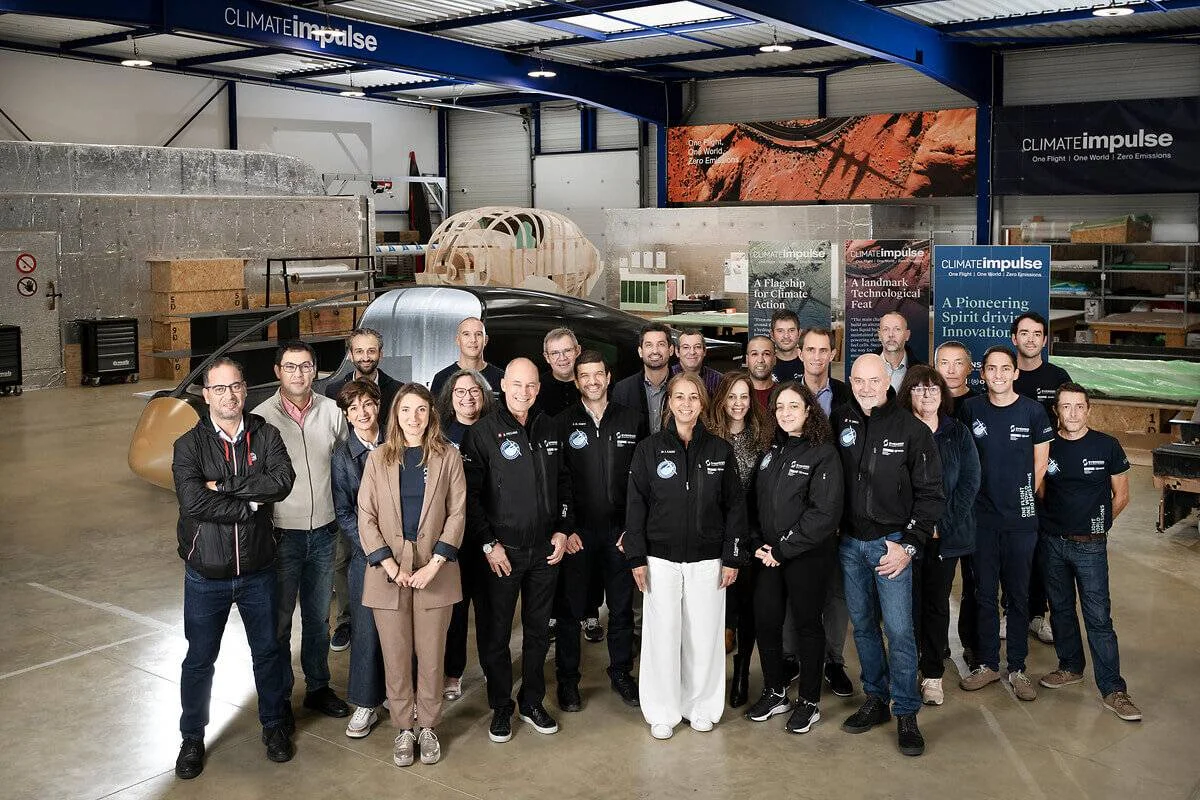
According to the International Energy Agency, in 2023, global aviation emissions reached nearly 950 million metric tons of CO₂.1 The aviation industry is one of the more challenging sectors to decarbonize because aircraft require fuels with high energy density to enable them to fly long distances without frequent refueling.2
Recognizing the need to reduce greenhouse gas (GHG) emissions in this sector, the Climate Impulse initiative aims to build an airplane and achieve the first non-stop, hydrogen-powered electric engine flight around the world. Climate Impulse is working to demonstrate the feasibility and benefits of hydrogen as a sustainable aviation fuel and inspire the aviation industry to adopt cleaner, more efficient technologies that can help reduce GHG emissions.
ACC memberSyensqo is the primary technology partner with Climate Impulse, bringing its experience in material science and engineering to the project.
Syensqo’s composite materials, including resin and polymer formulations and carbon fibers, are used to manufacture many of the components of the aircraft, from fuselage to wings and hydrogen tanks that store the fuel. Syensqo’s advanced composite and adhesive materials are 30 to 50 percent lighter than metals and are developed for extreme-demand environments with radical temperature changes.
Climate Impulse is working on a method to keep the green hydrogen used as sustainable aviation fuel at -253°C for nine days, a breakthrough in aviation. Green hydrogen needs to be this cold to remain in a liquid form. In its liquid state, hydrogen is much denser, allowing the aircraft to store more fuel in a smaller volume. This is important because it means the aircraft can fly without adding excessive weight or requiring heavy fuel storage, ultimately making long-distance, non-stop flights more feasible.
The development of the airplane, which included research, feasibility, and design studies, began in 2022. Aircraft construction began in early 2024, the year Syensqo signed on as the first main partner and began providing the materials used in manufacturing the hydrogen aircraft.
In the year since Syensqo joined Climate Impulse, the airplane cockpit has been completed. In 2025, a modular test bench will validate hydrogen fuel cells, propulsion systems, and components for electric flight. The airplane is expected to be completed by the end of 2025, and the first test flights are planned for 2026. By 2028, the Climate Impulse team plans to attempt the first round-the-world flight.
While the project is taking place in Europe, it has the potential for a global impact. Sustainable aviation fuel will likely play an important role in aviation as the industry moves toward reducing GHG emissions with the International Air Transport Association’s commitment to net-zero carbon emissions by 2050.



